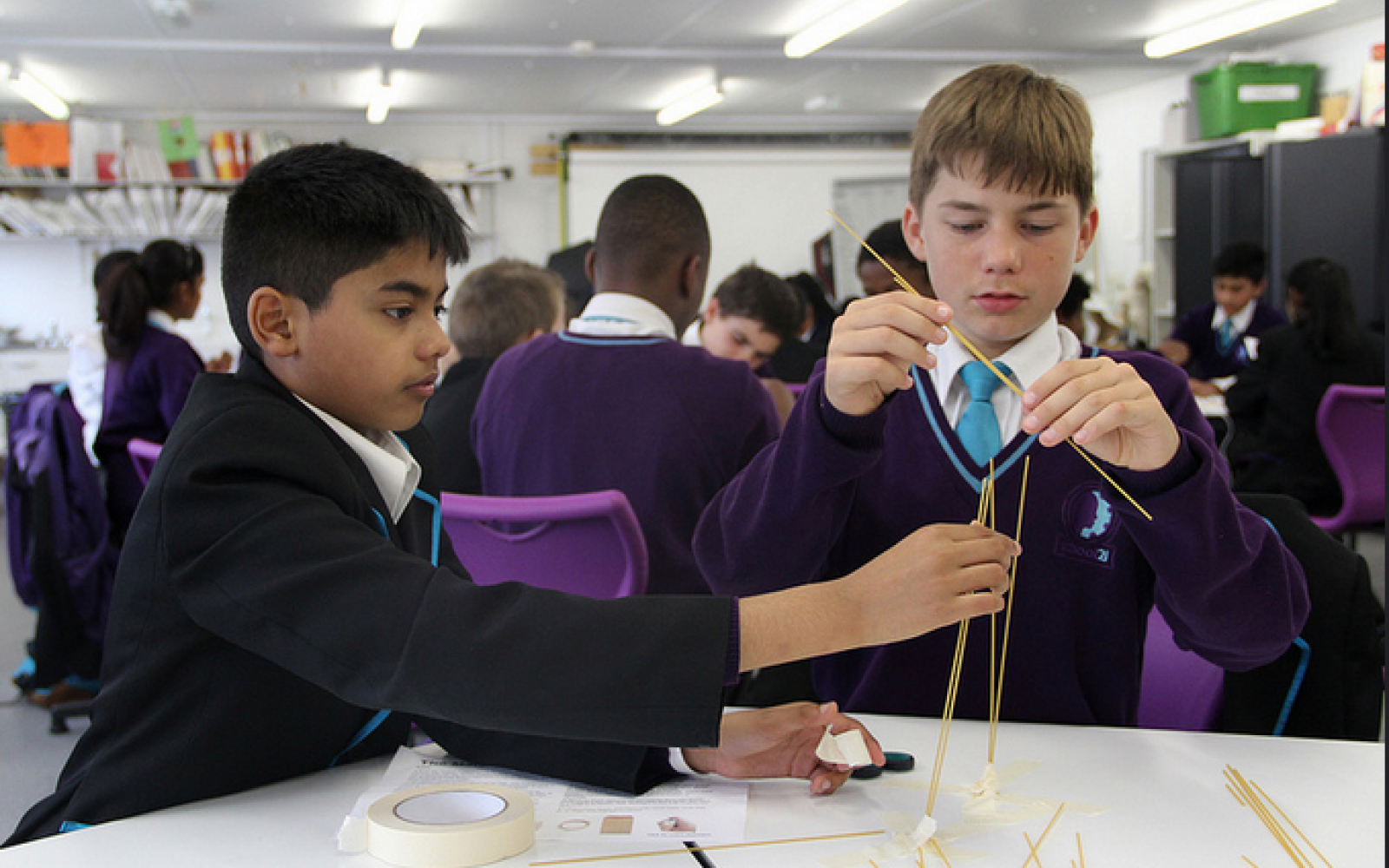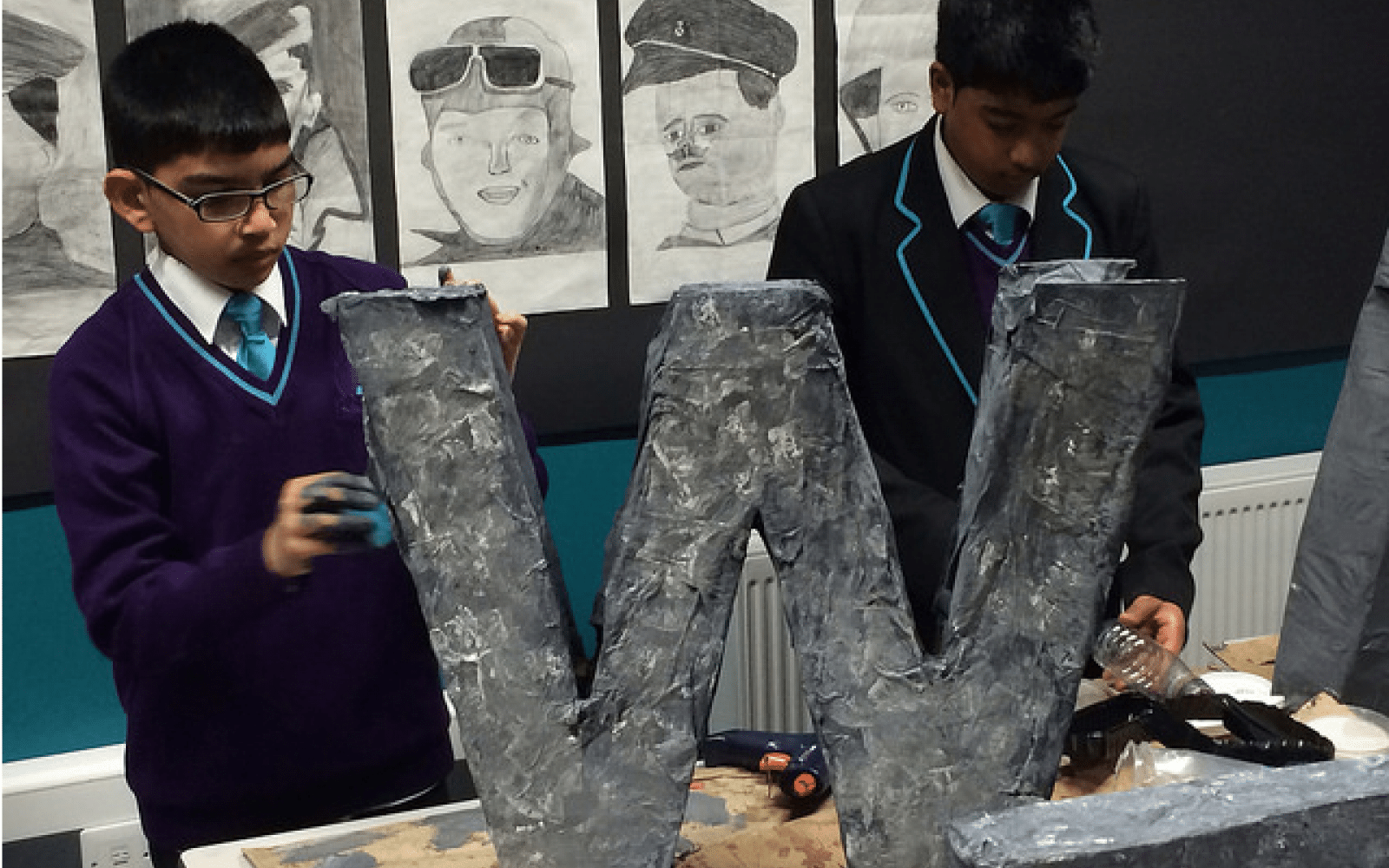The world is changing, and it’s changing fast — much faster than our education system has so far been able to keep up.
In his TED talk titled “Do schools kill creativity?” Sir Ken Robinson says that the purpose of education is to “take us into a future that we can’t grasp.” In a world that is increasingly defined by complexity, hyper-connectivity, and rapid technological advancements, it seems ever more necessary to equip young people with skills that enable them to adapt and thrive.
Whether one calls these “essential skills,” “character traits,” “grit education,” or “a growth mind set,” there is a consensus on the necessity for collaboration, creativity, and the ability to act constructively in an ambiguous and changing environment. In the context of an uncertain world, educationalist Carol Dweck advises: “The best thing parents can do is to teach their children to love challenges, be intrigued by mistakes, enjoy effort, and keep on learning.”
Education systems worldwide are facing criticism for failing to prepare children to face the challenges of the modern world, through an over-emphasis on repetitive learning and exam preparation. In this context we call for new learning ecosystems that empower young people to shape the future that they want, rather than only reacting to it.
But what do these new learning eco-systems look like?

Empowering within the education system
One example is School21 in East London. The school’s unique approach to education is rooted in their six attributes for success in the 21st century — expertise (mastering the basics of learning), professionalism (being ready to learn), eloquence (finding your voice), grit (overcoming set-backs), spark (creating new things) and craftsmanship (making beautiful work). They provide one-to-one coaching and personal support for every student. Their curriculum places a strong emphasis on spoken communication, and learning is rooted in real-world, hands-on projects that are displayed at regular community events.
Education is an important factor in a young person’s development, but it is not the only one. To genuinely support young people to become leaders we need to work across sectors.
Empowering children through entrepreneurship.
Jeroo Billimoria is a serial social entrepreneur who has launched a number of initiatives that empower young people. She founded the Childline India Foundation, a 24-hour emergency telephone service for street children in distress. Volunteer street children are trained to man the telephones and direct callers to relevant services. Childline works with official services — which often have conflicted relationships with street children — to promote children’s rights, challenge perceptions of street children, and create interventions that support them.
“Children need systems that are inclusive and driven by them, systems that will enable them to respond to their feelings and needs at any time,” says Jeroo. As of March 2015, Childline had responded to 36 million calls, operates in 366 cities, and works with a network of over 700 partner organizations.
In the UK, the social enterprise Bite the Ballot is kick-starting a movement to engage young people in democracy by identifying and removing barriers that prevent them from taking an active role in politics. It helps young people realize their political power through grassroots campaigning, connecting with young people online, and influencing policy.
“We have far too many young people not understanding the link between the issues they feel passionate about, and them being political,” says Michael Sani, Bite the Ballot’s co-founder. “We are on a mission to create spaces to enable, engage, and empower young people to be change-makers.”
Building a better world
These social entrepreneurs and educational innovators are demonstrating the importance of placing young people at the center of creating social change. By supporting young people to actively shape the world they want to live in, they are preparing a generation to thrive in a world of change and tackle the biggest social issues that are facing our world today.
